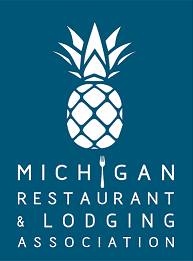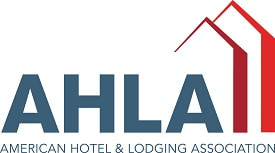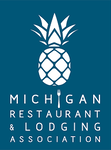Press Release
FOR IMMEDIATE RELEASE
May 3, 2021
Media Contacts:
|
Emily Daunt
Michigan Restaurant & Lodging Association (517) 377-3933 |
Leslie Pardo/Michael Odom
Marx Layne & Company (248)563-7213 |
Michigan Restaurant & Lodging Association Issues Public Policy Proposals to Ensure
Federal Funding Aids in Hospitality Industry’s Recovery, Ensures Vibrant Future
Federal Funding Aids in Hospitality Industry’s Recovery, Ensures Vibrant Future
LANSING, MICH. – The Michigan Restaurant & Lodging Association (MRLA) today released public policy proposals to address how the American Rescue Plan Act (ARPA) funds Michigan received for hospitality industry relief efforts could be most effectively used. The ARPA, which was signed into law by President Biden on March 11, provides $5.7 billion to the state of Michigan and another $4.4 billion to Michigan cities and counties to address the fiscal impacts caused by the COVID-19 pandemic. While the bill broadly references support for impacted small businesses as a qualifying recipient of the ARPA funding, only the “travel, tourism and hospitality” industry was singled out as a targeted recipient of appropriations made to state and local governments.
“The intent of Congress and President Biden is unmistakably clear,” said Justin Winslow, President & CEO of the MRLA. “The American Rescue Plan Act recognized that the hospitality industry has been disproportionately impacted by the pandemic and specifically crafted the bill to target state and local relief to devastated travel, tourism and hospitality professionals.”
The MRLA has devised a series of strategic public policy proposals to help the state’s $40 billion hospitality industry recover from the pandemic, sustain business, and thrive in the future. The proposals address hospitality businesses, including restaurants, hotels and banquet facilities, as well as workforce development.
"While the MRLA supports the governor's Vacc to Normal plan and appreciate its benchmarks tied to metrics, it is becoming increasingly apparent that a 70 percent vaccination rate is several months away at best. This brings into focus the continued need for financial support of a hospitality industry still operating under strict capacity restrictions," added Winslow.
Each of the MRLA’s public policy proposals was crafted to meet one of three primary objectives:
Read the full MRLA public policy proposals at mlra.org/arpa.
Highlights of the proposals are as follows.
Meaningful immediate relief
A safe environment to dine and travel
Hospitality workforce development, recruitment and retention
Collectively, the MRLA’s public policy proposals, if implemented, will enable the hospitality industry to survive and thrive through job creation and retention; reengaging dining, tourism, meetings and events; and constructing a synergistic environment that supports operators, workers, the supply chain and the economy as a whole.
“The intent of Congress and President Biden is unmistakably clear,” said Justin Winslow, President & CEO of the MRLA. “The American Rescue Plan Act recognized that the hospitality industry has been disproportionately impacted by the pandemic and specifically crafted the bill to target state and local relief to devastated travel, tourism and hospitality professionals.”
The MRLA has devised a series of strategic public policy proposals to help the state’s $40 billion hospitality industry recover from the pandemic, sustain business, and thrive in the future. The proposals address hospitality businesses, including restaurants, hotels and banquet facilities, as well as workforce development.
"While the MRLA supports the governor's Vacc to Normal plan and appreciate its benchmarks tied to metrics, it is becoming increasingly apparent that a 70 percent vaccination rate is several months away at best. This brings into focus the continued need for financial support of a hospitality industry still operating under strict capacity restrictions," added Winslow.
Each of the MRLA’s public policy proposals was crafted to meet one of three primary objectives:
- Provide meaningful immediate relief
- Promote and enhance a safe environment for Michiganders to dine and travel
- Invest in hospitality workforce development, recruitment and retention
Read the full MRLA public policy proposals at mlra.org/arpa.
Highlights of the proposals are as follows.
Meaningful immediate relief
- Create a Michigan fund similar to the Federal Restaurant Revitalization Fund (FRRF) administered by the Small Business Administration to provide grants to small restaurant operators that can demonstrate significant financial loss from the pandemic. The MRLA advocates that $250 million is put into a Michigan fund to meet the steep demand that exceeds the FRRF funding.
- Allocate $100 million toward incentives to book meetings and events in Michigan. The incentive would include a 15 percent credit against the hard costs associated with hosting a meeting or event through 2022, including hotel rooms, food and beverage and audiovisual expenses. This approach is similar to what was enacted in Colorado using CARES Act dollars.
- Enact hospitality industry-specific relief detailed in Senate Bill 114, totaling $405 million, including property tax relief, unemployment insurance tax relief, liquor license tax relief, food service establishment license relief, and license and inspection fee relief.
A safe environment to dine and travel
- Invest $150 million toward improving ventilation and air quality through direct reimbursement to restaurants, event spaces and banquet halls that install a functioning HVAC system that meets specified efficiency standards.
- Incentivize heightened COVID-19 safety training and higher sanitization standards for all restaurants, hotels and banquet venues in the state by allocating $5 million to improve public safety outcomes.
Hospitality workforce development, recruitment and retention
- Designate $50 million toward an employer tax credit for hospitality employee cash incentive for workers hired or rehired on or after March 11, 2021.
- Earmark $10 million to subsidize the cost to achieve industry certifications such as ServSafe and hotel certifications through the American Hotel & Lodging Education Institute, demonstrating the pathway to a prosperous, upwardly mobile and long-term career in the industry.
- Launch an industry-specific job board, funded with $2.5 million, to create access to employment opportunities and make meaningful connections between job seekers and their employers.
- Restore the ProStart program and launch the Hospitality & Tourism Management curriculum with $2 million in funding to provide the training and tools to the restaurant and foodservice industry leaders of the future.
Collectively, the MRLA’s public policy proposals, if implemented, will enable the hospitality industry to survive and thrive through job creation and retention; reengaging dining, tourism, meetings and events; and constructing a synergistic environment that supports operators, workers, the supply chain and the economy as a whole.
About the Michigan Restaurant & Lodging Association
Michigan Restaurant & Lodging Association (MRLA) is the recognized leader of Michigan's hospitality industry, providing essential services to the foodservice and lodging community. Founded in 1921 as the Michigan Restaurant Association and now known as the MRLA, the Association represents over 5,000 Michigan foodservice and lodging establishments. The industry plays an integral role in Michigan's economy, employing more than 595,000 people and creating nearly $40 billion in annual sales. For more information, visit www.mrla.org and www.detroitrla.org.
Michigan Restaurant & Lodging Association (MRLA) is the recognized leader of Michigan's hospitality industry, providing essential services to the foodservice and lodging community. Founded in 1921 as the Michigan Restaurant Association and now known as the MRLA, the Association represents over 5,000 Michigan foodservice and lodging establishments. The industry plays an integral role in Michigan's economy, employing more than 595,000 people and creating nearly $40 billion in annual sales. For more information, visit www.mrla.org and www.detroitrla.org.
###





